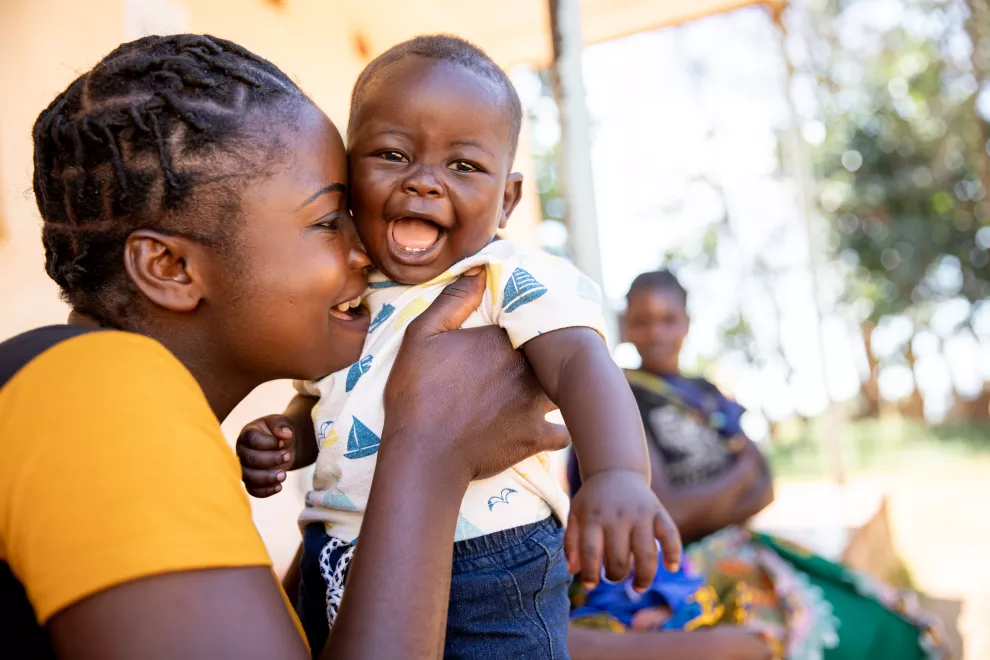
Principal Investigator: Dr. Esther Elisaria & Ms. Frida Katunzi
Project leader/ Coordinator: Dr. Esther Elisaria & Ms. Frida Katunzi
Project Administrator: Mary Irema
Funding Partner: Conrad N. Hilton Foundation
Start date: June 3, 2024
End date: April 30, 2026

Strengthening Early Childhood Development in Tanzania with Data-Driven Strategies
Ifakara Health Institute in collaboration with global and local partners including the government of Tanzania through various Ministries is implementig a new project to enhance early childhood development (ECD) in Tanzania through data-driven strategies and capacity building.
Importance of Early Childhood Development
Early Childhood Development (ECD) is vital for establishing a foundation for children's future health, education, and overall well-being. In Tanzania, despite efforts by the government and various stakeholders to improve ECD, significant gaps remain.
In 2022, the Tanzania Demographic Health Survey (TDHS) highlighted these challenges, revealing that only 47% of children aged 24–59 months are developmentally on track, leaving a staggering 53% off track. Alarmingly, the survey also showed a decline in the percentage of children development as they age, with figures dropping from 58% for children aged 24–35 months to 36% for those aged 48–59 months. This decline underscores the urgent need for targeted interventions.
Need for the project - Gap 1
The 2022 TDHS was the first assessment to establish the prevalence of ECD outcomes in Tanzania. However, there have been no studies identifying the determinants of poor development in the country. Additionally, the TDHS 2022 collected limited data on health, nutrition, WASH (Water, Sanitation, and Hygiene), and minimal information on violence against women and children. Crucial information on early learning, responsive caregiving, and child protection related to safety and security was missing.
Need for the project - Gap 2
Tanzania is focusing on developing an ECD Dashboard and scorecard. However, the effectiveness of these tools depends on the quality of the existing data. Currently, very few sectors or ministries conduct Data Quality Assessments (DQA) to ensure data validity, reliability, and application in decision-making. Issues with data quality have created substantial obstacles, including inaccuracies, inconsistencies, and potential errors, which undermine the reliability of the data and decision-making processes.
Project objectives
This project aims to address these critical gaps by:
- Conducting a secondary data analysis of the 2022 TDHS-MIS to document determinants influencing child developmental outcomes.
- Performing a Data Quality Assessment (DQA) on ECD-related information systems to ensure the reliability of data monitored through the National ECD Dashboard and Scorecard.
Research design and study areas
Using a mixed-methods approach, the project will combine desk reviews, quantitative data re-analysis, and exploratory qualitative data collection. Ifakara will focus on six zones in Tanzania's mainland (western, central, coastal, lake, northern, and southern), selecting one region from each zone to ensure national representation. The regions chosen—Rukwa, Lindi, Arusha, Tabora, Shinyanga, Katavi, and Njombe—reflect varied performance on the ECDI 2030 and stunting prevalence.
Key research questions
The project seeks to answer three pivotal questions:
- What are the existing determinants that influence child development outcomes as reported in the 2022 TDHS?
- What qualitative determinants influence child development outcomes in the selected study regions?
- How extensively do sub-national government actors at the district and community levels utilize the 2022 TDHS-MIS data to inform decision-making across different dimensions of ECD?
Partners and collaborators
The project brings together a consortium of partners and consultants, coordinated by Ifakara Health Institute. These include UNICEF (the custodian of the Early Childhood Development Index (ECDI) 2030 and ECD dashboard); and the government of Tanzania which will be the key collaborator in implementing and scaling project outcomes.
Other collaborators include the University of Dar es Salaam, Aga Khan University, Yale University, University of Chile, Kepler Consultant, and National Bureau of Statistics (NBS).
Timeline and leadership
The project is slated for 2024-2026, under the leadership of Dr. Ester Elisaria as Principal Investigator and Ms. Farida Katunzi as Co-Principal Investigator from the Ifakara Health Institute.
Funding and support
The Conrad N. Hilton Foundation has generously provided a research and evaluation grant to support this initiative, emphasizing the global importance of strengthening ECD frameworks through rigorous data analysis and strategic capacity building.
